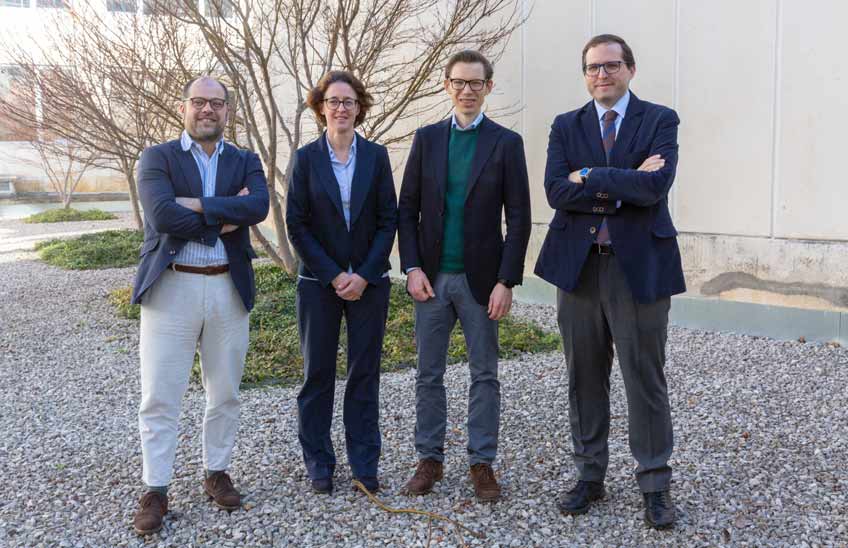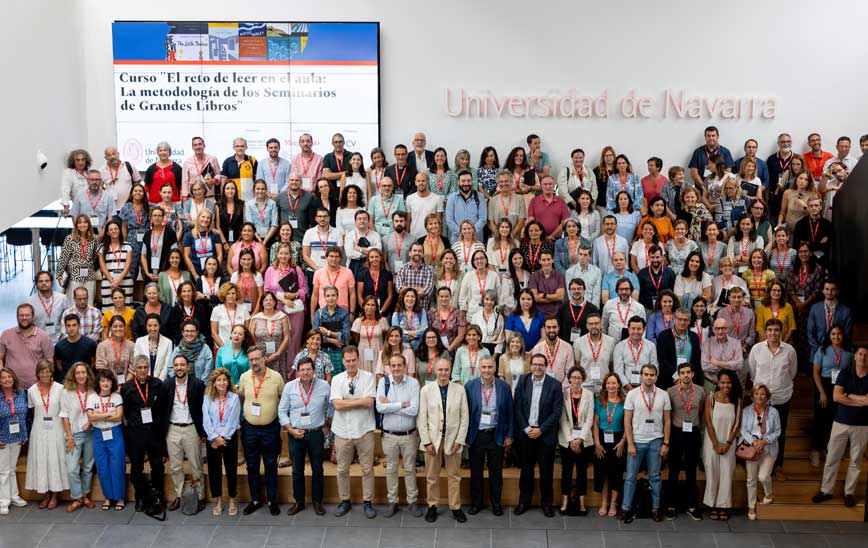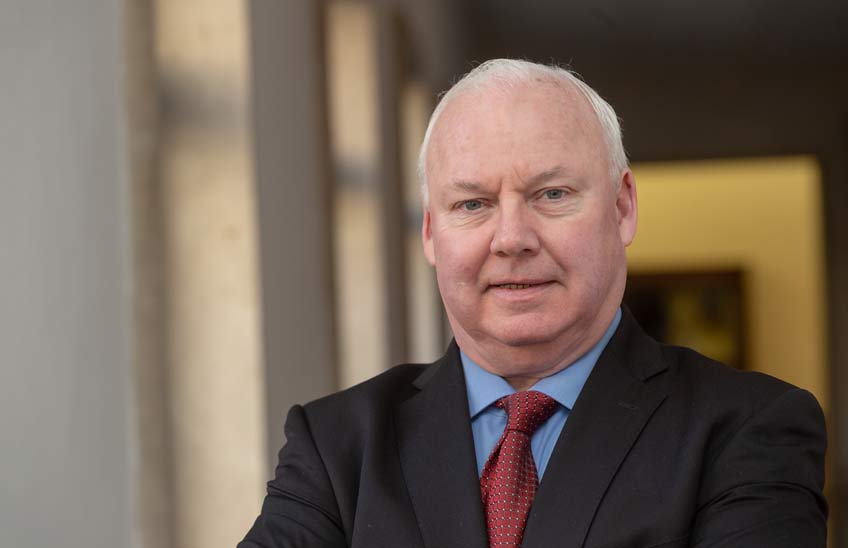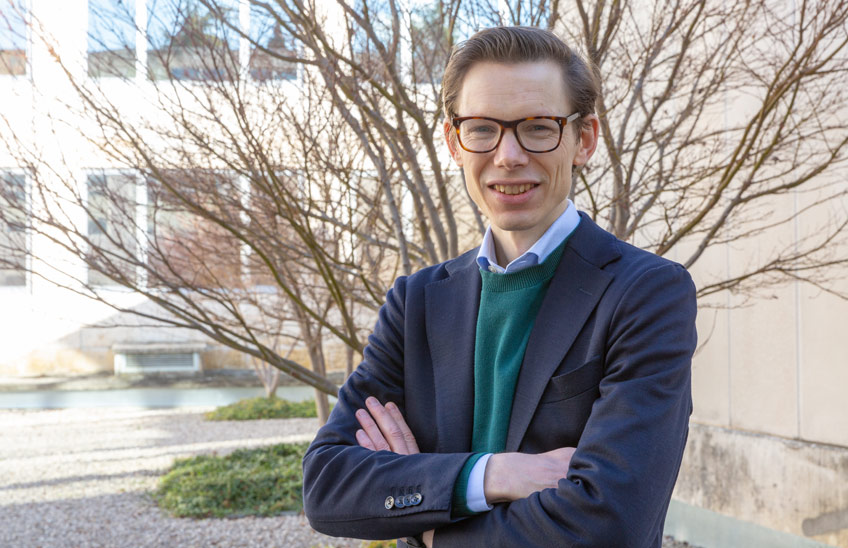The ICS presents the Spanish version of a document framework of Oxford on the mission statement of the universities for the development integral of the students.
The Centro Humanismo Cívico makes available to Spanish-speaking campus its translation of a text that reflects on the need for character Education for students to flourish.

FotoManuelCastells
/From left to right, Vianney Domingo, Emma Cohen de Lara, Edward Brooks and José María Torralba.
02 | 02 | 2023
The Centro Humanismo Cívico for programs of study on the character and ethics of the professions at the University of Navarra has prepared the Spanish translation of the document framework Character Education in Universities. A Framework for Flourishing. This version, presented at the Institute for Culture and Society (ICS), has been made possible thanks to funding from the John Templeton Foundation and Fundación Ciudadanía y Valores.
The English text is a proposal developed by the Oxford Character Project at the University of Oxford and the Jubilee Centre for Character and Virtues at the University of Birmingham, both in the UK. It was developed based on consultations with senior university leaders and academic specialists in Education from campus in the UK, USA, Asia and Europe.
Speakers at the event included Tom Harrison, director attachment of the Jubilee Centre for Character and Virtues; Edward Brooks, director executive of the Oxford Character Project; and Vianney Domingo, researcher of the Centro Humanismo Cívico and translator of the text into Spanish. José María Torralba, director , moderated the session.
La Education del carácter en las universidades. A document framework for flourishing is available to Spanish-speaking universities around the world. It aims to offer them financial aid to formulate and design their mission statement in order to promote the flourishing of their students, which includes the development of character.
training from student body and wisdom internship
agreement to Edward Brooks, the goal is to "train the student body and set them on a path to acquire habits and practices aligned with what they want to be and the subject of the world they want to live in. In his opinion, it is about developing internship wisdom or prudence: "It is the sense of what to do in different circumstances, what virtue to prioritize in order to do the right thing in the right way in a complex and challenging context". To this end, he proposes a discursive and critical approach , "dialogic rather than didactic", and based on personal relationships on campus, among students and also with the faculty.
As José María Torralba explained, "in the Spanish-speaking world it is rare to consider the development of character as a mission statement proper to universities". However, he recalled that "all professional training - as a doctor, engineer or teacher - requires the cultivation of a series of virtues for its proper exercise. The question is how to achieve this goal". The professor explained that this document "offers an excellent guide for universities and professors to define the most appropriate way".
For his part, Vianney Domingo added that this work "wants to provide coordinates on how to articulate the increasingly explicit desire of many universities to orient students in directions that will help them lead fulfilling (or flourishing) lives," as citizens, professionals and human beings, "lives that contribute significantly to the public good and that provide an authentic sense of purpose and meaning." He has considered that "it is a necessary proposal to help universities redesign their mission statement from this perspective, showing that there is no separation between the technical training and the training staff ".




